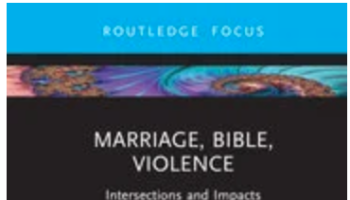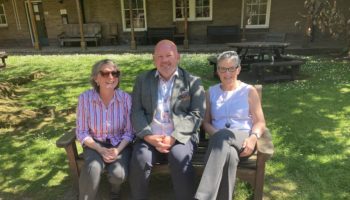Today we’re profiling the research of NCLS, an organisation that conducts, facilitates, and promotes research on ‘Australian spirituality, church health, effective and resilient leadership, and the connections between church and community’ (see here).
The name ‘NCLS’ comes from the organisation’s best known project, called ‘the National Church Life Survey’, which takes place five-yearly and has included millions of participants.
NCLS researcher Miriam Pepper, together with Ruth Powell, has just published a paper that may be of particular interest to Shiloh Project followers. The title is, ‘Domestic and Family Violence: Responses and Approaches across the Australian Churches’ (published in Religions 13/3, 2022).
In Miriam’s own words, ‘We have done this research with support from an Australian Research Theology Foundation Inc. grant, using data across denominations from the 2016 National Church Life Survey, to provide a robust empirical foundation to support those who are working to address issues of domestic and family violence in connection with the churches.’
The article is freely available here, and there are further results, broken down by denomination, gender and age, here.
The abstract of the article is:
Domestic and family violence (DFV) is a serious and widespread problem in Australia and across the world, including in faith communities. There are calls for research to assist churches to better recognize, respond to and prevent violence. This study draws on data from the 2016 Australian National Church Life Survey (n = 883 senior local church leaders, n = 1270 churchgoers) to provide the first Australia-wide cross-denominational statistics on Christian clergy responses to DFV. Two-thirds of leaders had previously dealt with DFV situations in their ministry, primarily responding to victims of abuse by referring them to specialist support services and by counselling them. The findings suggest a particular depth of experience with DFV situations and strength of awareness of the needs of victims for safety and specialist support among Salvationist leaders. While, overall, a substantial majority of churchgoers felt that they could approach their church for help if they were experiencing DFV, just half of Catholics felt that they could do so. Future research should explore responses to DFV in specific denominations and culturally and linguistic diverse contexts in more detail and seek to understand the practices used by the large minority of clergy who are dealing with perpetrators.

NCLS also offers a range of other resources, including free downloads. Some of these – e.g. on the views and experiences of children in churches, on indigenous and non-indigenous relations in churches, and the National Anglican Family Violence Research Report – are likely to be of considerable interest to Shiloh readers.






